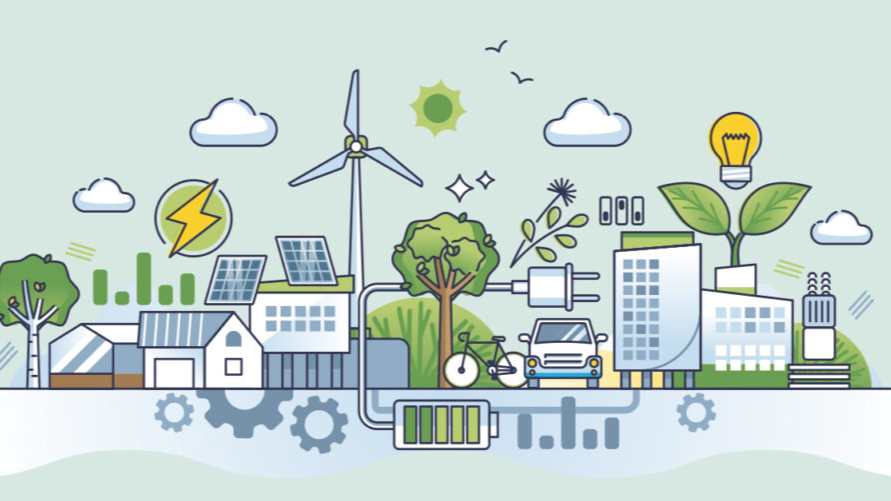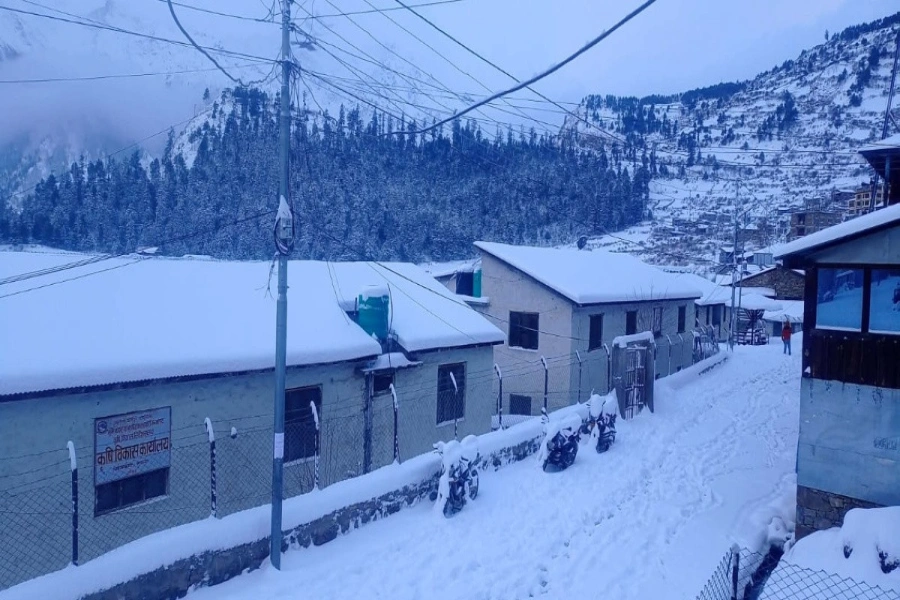The citizens of seven out of 10 LDCs do not have access to electricity. Their women and children spend hours daily collecting cooking fuel
Most least developed countries (LDCs), including Nepal, have ample potential for renewable and clean energy. But they seldom tap that potential. Consequently, 70 percent of the 900 million people living in the 48 least LDCs have limited access to energy. In other words, citizens of seven out of 10 LDCs do not have electricity in their homes.
Women and children spend hours collecting fuel for cooking, building fire, fetching water and grinding grains. This acute energy crisis is the binding constraint on structural transformation LDCs so desperately need.
An LDC is also a Less Economically Developed Country (LEDC), a country with a lower standard of living, less industrial development and less developed economy compared to more developed countries. If we are committed to a better world, the current status of LDCs needs to be changed through structural transformation and sustainable development.
The UN initiated program of Sustainable Energy for All (SEforAll), in 2011, and which is one priority area for the 2030 Development Agenda. The three main objectives of SEforAll are ensuring universal access to modern energy services, doubling the share of renewable energy in the global energy mix and doubling global improvement in energy efficiency.
These objectives clearly reflect the call of SDG 7 for “affordable, reliable, sustainable, and modern energy for all” by 2030.
Nepal’s Path to a Sustainable Energy Future

World leaders in 2015 agreed to an agenda that will achieve sustainable development while tackling climate change and SEforAll. At the same time, LDC Group has carried out initiatives in the areas of capacity building, protection from impacts, vulnerability and adaptation to climate change and international co-operation for sustainable energy. These are commendable steps. However, financial constraints, limited capacity and lack of enabling environment remain major challenges for LDCs to implement SEforAll by 2030. If LDCs can overcome these challenges, it would revolutionize their economy and bring about sustainable development.
LDCs have considerable potential of solar power, wind power, hydropower and bio-mass. These resources are suited to meeting the far-reaching need for energy in rural areas, for employment generation and more economic activities. Development of such sustainable models could also reduce energy dependence and open the door for economic development. But there are still many social, political, and economic hurdles to realize full potential of alternative and clean energy in LDCs. So what should be done?
Measures should be taken to prevent and control natural disasters, vulnerability to economic shocks and political instability, which are also indicators against sustainable development.
It is vital to ensure access to adequate finance for LDCs in order to develop sustainable energy initiatives and build renewable power capacity. For this, the international community needs to increase its Development Assistance, Partnership and Collaboration to LDCs as they have promised to do in many international forums.
Technology Bank, which was established at the start of 2017, can be used to strengthen capacity of LDCs through technology transfer and Science Technology and Innovation (STI).There is also need for financing solutions that support modern energy initiatives every step of the way.
At least 50 percent of official development assistance (ODA) should go to LDCs, as per the international commitment. Likewise, multilateral and regional banks should work to bring modern energy to the entire populations of LDCs. The South-South and Triangular cooperation will also play a big role in achieving SEforAll goal by 2030. For their part, LDCs also need to create an enabling environment for better mobilization of domestic finance.
The Civil Society Organizations (CSOs) can play an important role in policy advocacy, knowledge codification and sharing, partnership building and active collaboration with multi-stakeholder initiatives. Meaningful participation of CSOs and community-based organizations (CBOs) is essential to expediting SEforAll initiative. They can act as trusted intermediaries between government, the private sector and energy users, as well as having expertise in designing and delivering energy services, particularly for people living and working in difficult circumstances.
Energy interventions will have an explicit development effect only if the concerns of equality of access and the benefits and costs of energy investments for poor, marginalized and vulnerable groups are adequately addressed. Therefore, national governments, development partners and UN need to provide adequate space for CSOs and CBOs in process of designing, implementation and monitoring of the projects.
Access to affordable and sustainable modern energy will have great impact in the health, education and poverty level of people of LDCs. If we have sustainable energy in these countries, it could change the power dynamics of the whole world.
The Istanbul Programme of Action for the Least Developed Countries for 2011-2020 (IPoA) has recognized access to affordable, reliable and renewable energy and related technologies, as well as the efficient use and distribution of energy as critical to accelerated growth, improved livelihoods and advanced sustainable development of LDCs.
To achieve the SEforAll in LDCs, they need to tap all available sources of energy while having medium- and long-term strategies for transition to clean, green and renewable energy. For this, they also need to develop national strategy to create enabling environment and a supportive investment climate. Likewise, sensitization of population, involvement of CSOs and CBOs in planning and implementation and inter-agency coordination should be the priority.
In this regard, the LDC initiated Renewable Energy and Energy Efficiency Initiative (REEEI) for Sustainable Development should be put into action. This new initiative, let us hope, will help improve livelihoods across the LDCs, bringing modern, clean, resilient energy systems to millions of energy-starved people.
Therefore the SEforAll goal of “Going Further, Faster—Together” will just not be a popular slogan, but a sustainable energy action to ensure no one will be left behind.
The author is a former Member of National Human Rights Commission and International Coordinator of LDC Watch, a global CSO platform







































